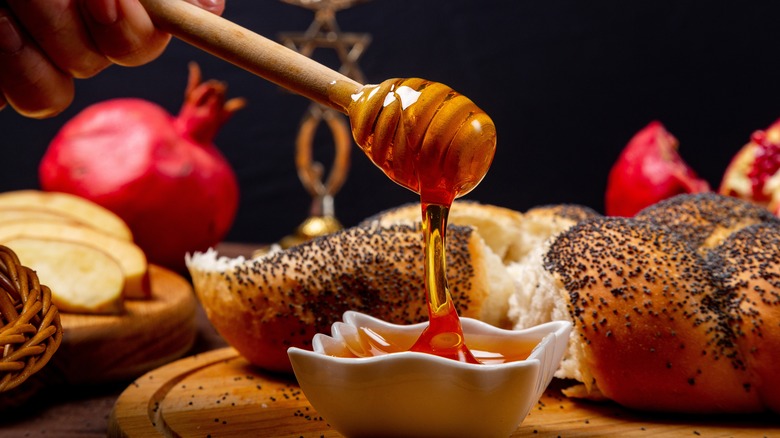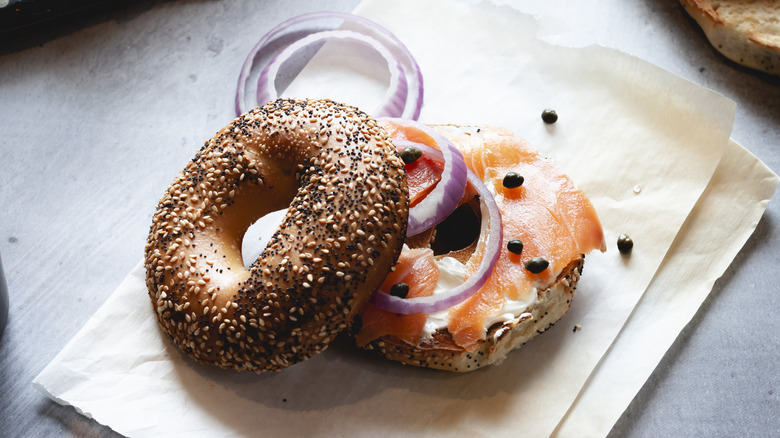Are Any Foods Or Drinks Traditionally Allowed During Yom Kippur?
We may receive a commission on purchases made from links.
Yom Kippur, also known as the Day of Atonement, is a very important holy day in Judaism that corresponds with 10 Tishrei on the Hebrew calendar. The religious holiday is all about repenting, reflection, and asking for forgiveness. One critical aspect of the occasion is a 25-hour fast that begins at sunset. That means all forms of food and drink — even a tiny swig of water — are prohibited during the fast. But while those rules are pretty strict, there are certain exceptions where health is concerned.
If a person is advised not to fast for medical reasons, they may consult with a rabbi to be excluded from this religious requirement. According to the Torah, while fasting can be considered a mitzvah (a good deed in the Jewish faith), prioritizing one's health is also considered a mitzvah, which could mean skipping out on the fast if it would cause the person harm.
Still, if a person must eat or drink, the Torah calls for them to limit this to less than 1.26 ounces of food or a "cheekful" of liquid at a time and to separate these with nine-minute intervals (via Chabad.org). If a doctor advises differently, however, they can follow medical advice as needed to protect their health. Another stipulation is that a person who breaks the fast for medical reasons must resume the fast if they become well enough.
How the fast is traditionally broken after Yom Kippur
After the sun sets and Yom Kippur ends, Jewish people traditionally break their fast with a light meal to ease back into eating. It's common to start with something simple and easy to digest, like crackers or a slice of challah bread. In fact, these days, challah comes in many different forms ranging from sweet to savory, and it can be a wonderful treat for breaking the fast (for example, the cookbook "Rising: The Book of Challah" has recipes for everything from spinach-ricotta challah to apple and honey challah).
Hydrating drinks like orange juice are a big relief after going so long without even a sip of water. Carb-heavy bagels are a favorite way to break the Yom Kippur fast in the U.S., and they're often served with savory toppings like cream cheese, lox or smoked salmon (which do differ, by the way), and capers. Light soups like matzo ball soup are also popular choices.
For many, the break-fast meal becomes a celebration, where families gather together in gratitude, having completed the spiritual journey of Yom Kippur. While the fast itself is a deeply personal experience, the moment of breaking it allows everyone to feel relief and renewal after the holiday. In addition to preparing and eating a big meal right before the fast, many people choose to prepare for the break-fast meal far in advance since there's no cooking allowed on Yom Kippur.

